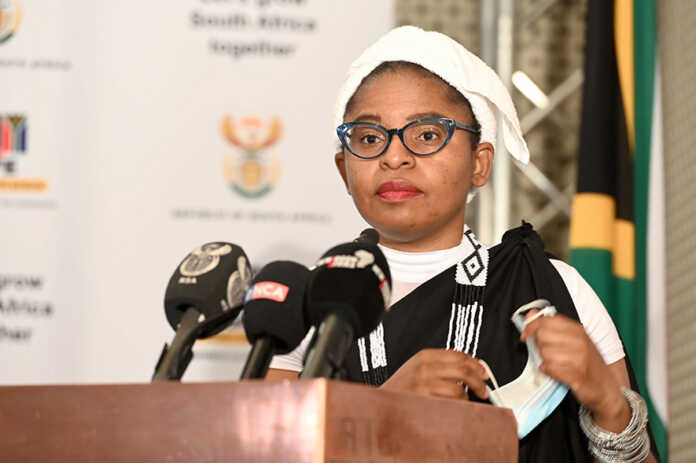Minister in the Presidency Khumbudzo Ntshavheni said South Africa is increasing its counter-terrorism efforts as part of sweeping reforms to the State Security Agency (SSA).
Ntshavheni was presenting the State Security Agency 2025 Budget Vote in Parliament on Tuesday.
Growing, unpredictable global threat
She said terrorism has become a growing and unpredictable global threat, with serious implications for national security.
SSA, said Ntshavheni, has been directed to treat terrorism and terror financing as a top priority. This as outlined in South Africa’s National Intelligence Priorities.
“Terrorism stands as one of the most pressing and insidious threats to global peace and security in the 21st century,” said Ntshavheni.
She also noted that the danger is no longer limited to specific regions or ideologies. It has become a global phenomenon that could impact South Africa at any moment.
As part of its strategy, the SSA is boosting its ability to detect and prevent acts of terrorism. Particularly those involving financial support networks.
She said the agency is also intensifying its cooperation with regional and global partners. These include the Southern African Development Community (SADC) and other foreign intelligence services.
Organised crime networks
Ntshavheni warned that terrorist groups in other parts of the continent are increasingly working with organised crime networks. They are forming what she referred to as dangerous hybrid threats. These include arms-for-drugs exchanges and smuggling routes.
“We continue to monitor if such linkages are emerging in South Africa. With its multifaceted and ever-evolving forms, terrorism stands as one of the most pressing and insidious threats to global peace and security in the 21st century,” said Ntshavheni.
In response, she said the SSA is expanding its counterterrorism presence. It is participating in joint efforts led by the SADC Regional Counter Terrorism Centre.
“The intersection of border security and migration presents a multifaceted challenge with profound implications for individual states and nationals globally.
“In a globalising world characterised by porous borders, ease of movement of goods and people, as well as the rapid flow of information through technology-enabled channels, our security is increasingly becoming entangled with that of our region of Southern Africa, the continent of Africa, and indeed the rest of the world,” said Ntshavheni.



